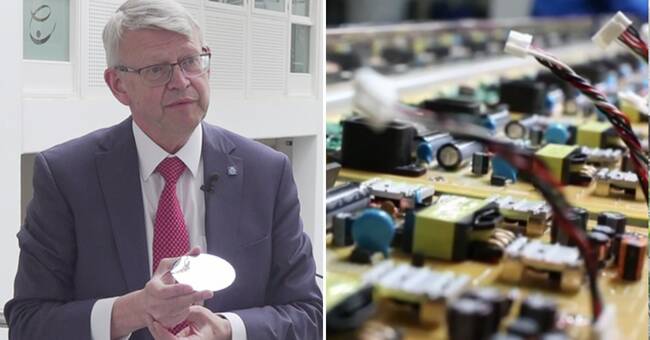The semiconductor market is huge and has a turnover of more than a thousand billion kronor a year.
Like many other industries, the coronavirus has led to a shortage of the product, while demand has increased in many areas.
- The factories have not been full.
It has also burned factories.
And so the pandemic has caused us to consume more consumer electronics.
In addition, the car industry, which is now on a low flame now due to the semiconductor shortage, may not have been foresighted enough, says Mikael Östling.
Has become so small that it creates problems
At KTH's laboratory in Kista, research is being carried out into new materials and technologies that will increase the performance of the chip.
They have been around for about 50 years now and have become much smaller over the years, so small that the laws of physics can begin to become a problem.
- A transistor today can be only ten atoms wide.
With such precision, it is enough for a single atom to be incorrect, for the entire chip not to work, says Mikael Östling.
- But it is performance that is interesting, not the amount of transistors.
When the surface becomes narrow, we go to height instead and build in several layers for increased functionality.
But it can lead to heat radiation and it is a big challenge in the future how the chip can be cooled, he says.
Östling calls technology "humanity's most advanced today", but at the same time expresses some doubts about the development.
- We have a superstition that technology should be made with circuits.
A connected refrigerator may not really mean much to the quality of life, but you are looking for business models that create a market.
But then you also expose yourself to the risk of being exposed to cyber intrusion via the refrigerator, he says.
Asian dominance in the market
The lack of semiconductors will gradually disappear, Mikael Östling believes.
The industry says that it is investing huge sums in building more factories.
Manufacturers in Asia, Taiwan, Japan, South Korea dominate completely.
In Europe, there is a newly formed consortium, called EPI, to bring cheap chips to market.
- I think we will have a new scenario for how the factories are organized.
Both the automotive industry and other industries will grow.
In Europe, we do not have much of our own manufacturing, except when it comes to manufacturing equipment for making integrated circuits, says Mikael Östling.
- But geopolitics and security suggest that Europe should have more local chip production.

